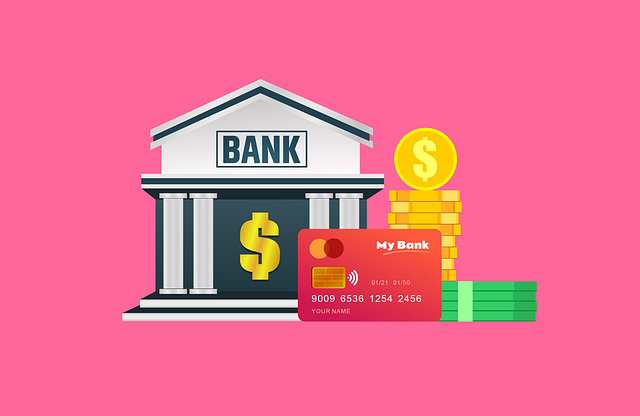Unemployment can exacerbate debt, especially credit card debt. Credit card debt consolidation offers a strategic solution by combining multiple cards into one loan with lower interest rates, simplifying repayment and saving money. This approach provides financial relief, reduces stress from multiple creditors, improves credit scores, and paves the way for better borrowing opportunities in the future if managed responsibly. During tough economic periods, prioritizing high-interest debt repayment, creating a budget aligned with income and expenses, and considering extended repayment terms are key to proactive financial management.
Unemployment can severely strain financial health, leading many to seek solutions for managing mounting debts. In such challenging times, understanding the interplay between unemployment and debt is crucial. This article explores two key strategies for navigating this labyrinth: Credit Card Debt Consolidation and effective management of personal loans and bills. By delving into these approaches, we aim to provide vital tools for maintaining financial stability during tough economic periods.
- Understanding Unemployment and Its Impact on Financial Health
- The Role of Debt Consolidation in Managing Credit Card Debt
- Strategies for Repaying Personal Loans and Bills During Tough Times
Understanding Unemployment and Its Impact on Financial Health
Unemployment can significantly strain an individual’s financial health, leading to a cascade of challenges, especially regarding debt management. When job prospects fade, income streams dry up, making it difficult for people to keep up with their financial obligations. This situation often results in spiraling credit card debt and various other loans, creating a complex web of repayments that can be overwhelming.
The impact extends beyond financial strain; it can also lead to a loss of stability and security. Many individuals turn to personal loans or bill consolidation as a temporary solution to manage their debt, aiming to alleviate the pressure and regain control over their finances. Credit card debt consolidation becomes a strategic move to simplify repayment terms and potentially reduce interest rates, offering some respite during an otherwise turbulent period.
The Role of Debt Consolidation in Managing Credit Card Debt
Debt consolidation is a strategic approach that can significantly help individuals burdened by credit card debt. By combining multiple high-interest credit card balances into one loan with a lower interest rate, debt consolidators can simplify their repayment process and save money in the long run. This strategy offers several benefits, particularly for those facing unemployment or financial challenges. With consolidated loans, borrowers can focus on making consistent payments towards a single debt, rather than juggling multiple cards with varying due dates and rates.
Unemployment often leads to a sudden increase in credit card debt as individuals struggle to make ends meet. Credit Card Debt Consolidation provides an opportunity to regain control over finances by reducing monthly payments and eliminating the stress of multiple creditors. This can be a game-changer for unemployed individuals, allowing them to allocate their limited resources more efficiently and potentially avoid further financial strain. Additionally, consolidation may improve credit scores over time if managed responsibly, opening doors to better borrowing opportunities in the future.
Strategies for Repaying Personal Loans and Bills During Tough Times
During challenging economic periods, managing personal loans and bills can feel overwhelming. However, employing strategic approaches can significantly ease the burden. One effective method is prioritizing payments based on interest rates; focusing on repaying debts with higher rates first helps save money in the long run. Additionally, consider consolidating credit card debt through specialized loans designed for this purpose. These loans often offer lower interest rates and flexible terms, making it easier to manage repayments.
Another valuable strategy involves creating a budget tailored to your income and expenses. This ensures that every payment is prioritized according to its importance. Moreover, exploring options like extending repayment periods (when feasible) can provide some breathing room while keeping you on track financially. Regularly reviewing and adjusting your budget as circumstances change is key to staying proactive during tough times.
Unemployment can significantly impact financial health, but understanding its effects and employing strategic solutions like debt consolidation for credit card debt, alongside careful planning for personal loan repayment, can help individuals navigate tough times. By prioritizing financial management and considering various repayment strategies, it’s possible to restore stability and build a more secure future.
